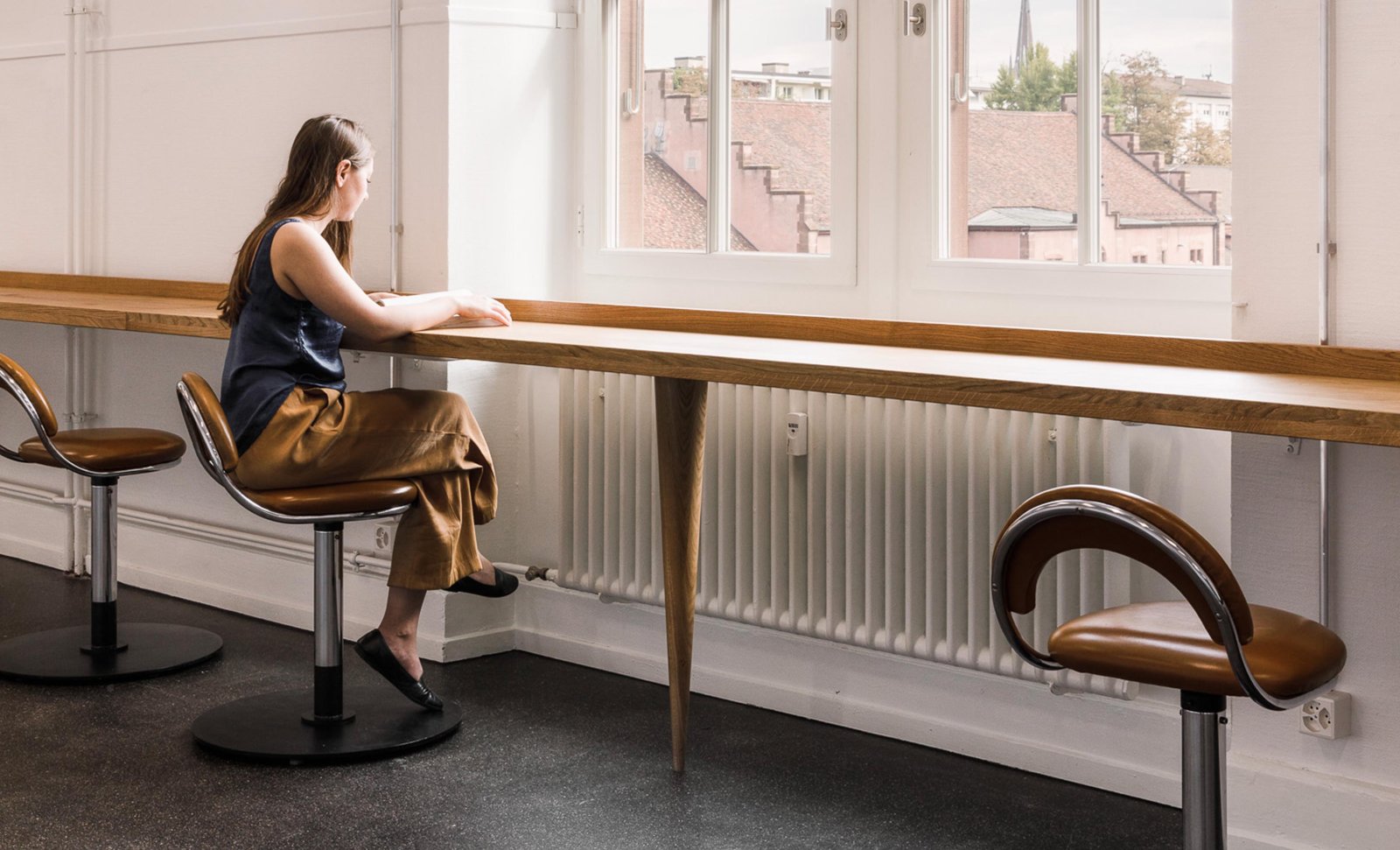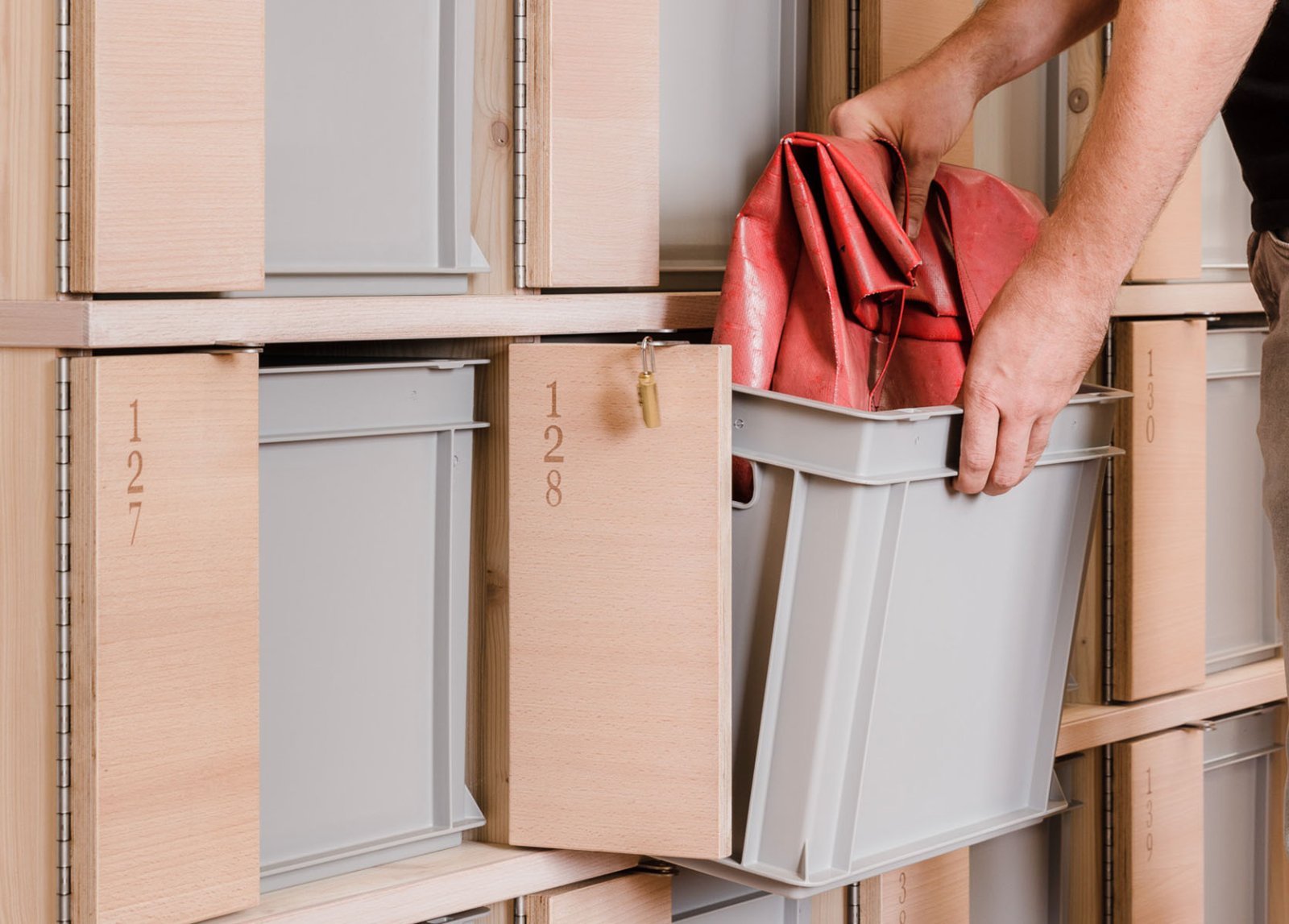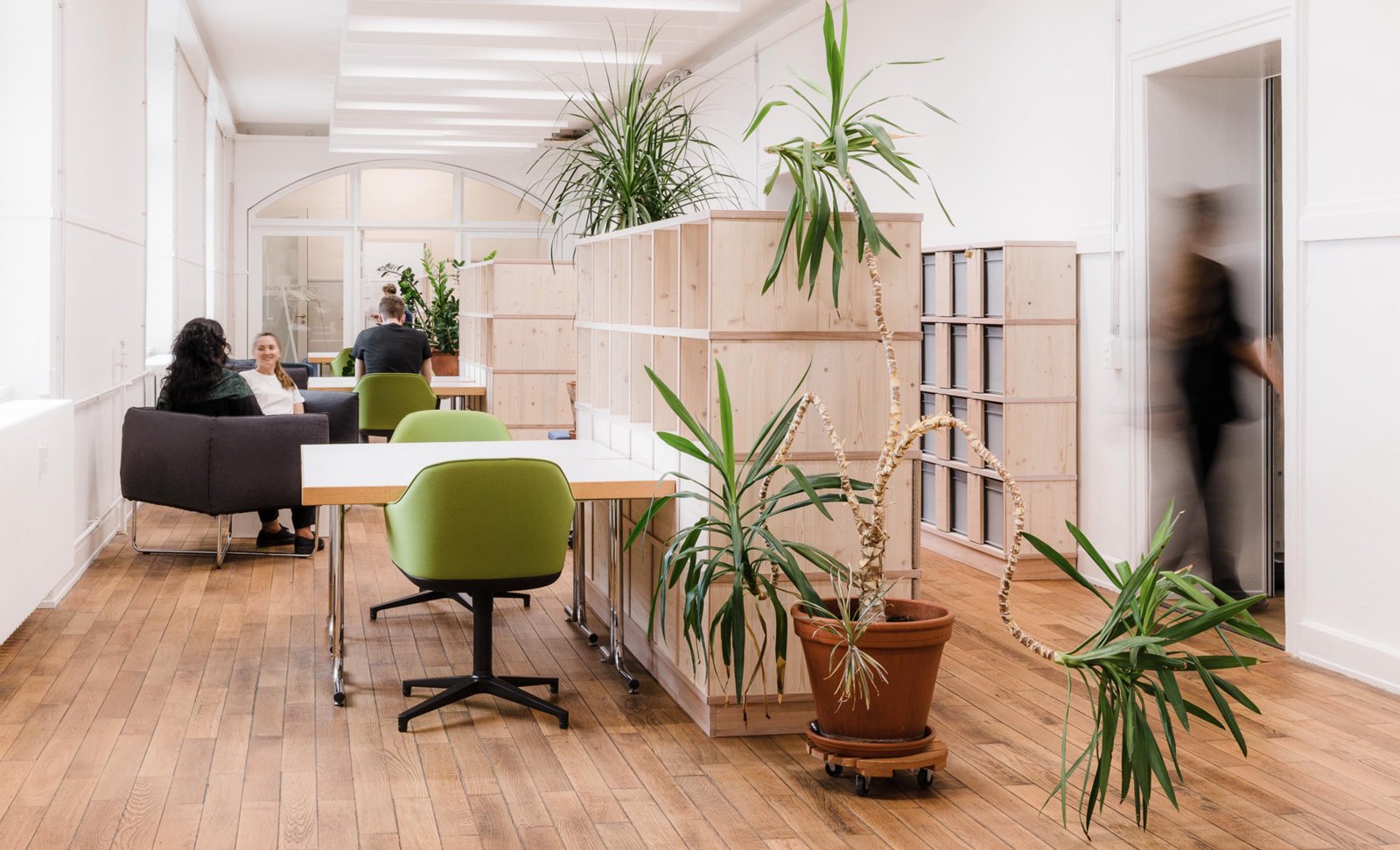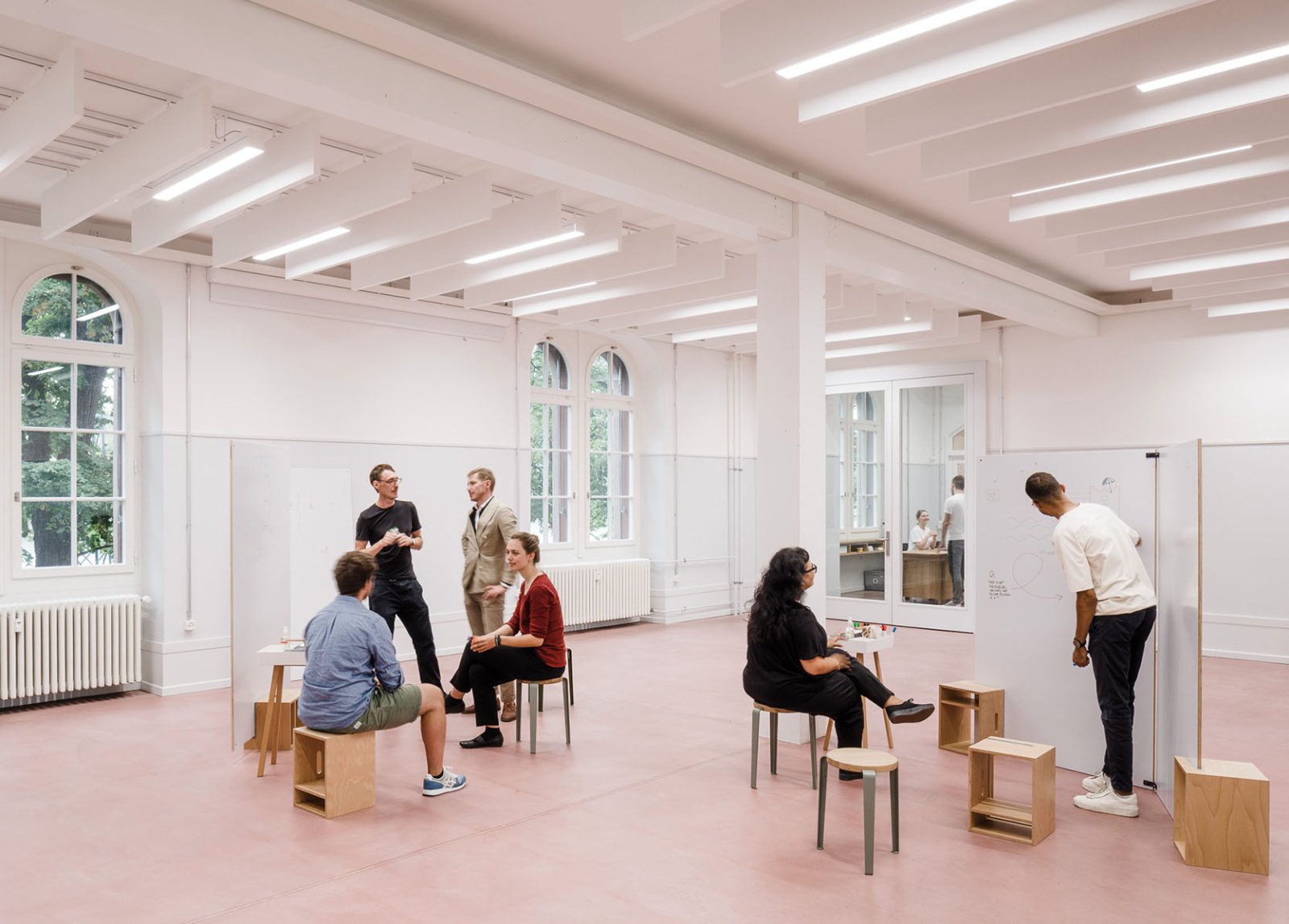
The kHaus workspace was carefully designed by Studio Banana according to the principles of multipurpose use, circular economy and respect for the cultural heritage of the historic building.

The Challenge
The Kaserne area –a former military barracks complex in central Basel– has undergone several transformations over the years, the most recent one has seen the prominent building become a leading hub of social and cultural enterprises in Switzerland.
The main building of the Kaserne was renovated by Focketyn del Rio, opening it up towards the city and towards the river Rhine. Fluxdock in partnership with Studio Banana won a public tender organised by the City of Basel to become the operator of the spacenow called kHaus, including event and co-working facilities. Given the high visibility of the project and its greater good civic purpose, we took it as an opportunity to demonstrate in an exemplary manner that a qualitative environment can be conceived while putting circular design into practice.
The Outcome
An inviting and multifaceted environment that provides a lively coworking and event atmosphere adapted to future users’ requirements and wide ranging target groups. Following a cohesive ensemble approach, we gave each space its own unique character while respecting the architectural heritage of this historic building. From informal exchange, networking and break rooms to more formal areas for concentration, meetings and workshops, the design allows for a versatile and shared use of the space by all tenants.
Through an unconventional and future-looking design approach fueled by Studio Banana's sustainable vision “Form follows availability”, we developed a second-cycle furniture and material supply ecosystem aimed at reusing or upcycling existing resources through a network of local and social enterprises. As part of these efforts we became members of the Smart City Lab Basel with our research project Second Cycle Office, sponsored by the Swiss Federal Railways SBB and the City of Basel.





Discovery
As this building was meant to be the new home for the local community, we carried out a co-design process involving the local social and cultural organisations to understand their ambitions, user needs and functional requirements. Out of this consultation process, we identified key strategic drivers that guided the development of the project:
The upcycling approach
Following the sustainable aspirations posed during the co-design process, we embraced some of the principles of Circular Economy fitting out all the spaces with second-cycle products and furniture supplied, repaired or upcycled by a local network of partners and social enterprises.
The complex scouting process
Building on a robust functional layout of the space with clear look & feel intentions in mind, we started the challenging mission of scouting second-cycle equipment and furniture “with a story behind” that fit into this framework. This approach turns upside down the classical linear design implementation process, turning it into an ever-evolving cyclical process of discovery and constant recalibration; the true “design follows availability” mantra.
The complex logistics managed by the Studio Banana team included a whole process of research, scouting, documentation and selection, cost control and purchase as well as repairment, cleaning, upcycling, storage, transport and installation.
As a result, we built a dense sourcing network across the region within a 20 Km radius (in warehouses of local large companies, spotted in local shops or from private sellers online) and also developed an upcycling network to manage the complex exercise of replacing missing parts, repairing damaged pieces and hacking repurposed elements. In order to achieve that we established a successful collaboration with local non-profit associations supporting the integration of underprivileged people into professional life.
A patchwork harmony
As a result of the careful scouting and selection process, the different spaces at kHaus offer a diverse yet coherent second cycle atmosphere while providing high functionality and stable quality.
The multi-culti corridor allows for different working scenarios and exchanges and is composed of a mixture of pre-loved furniture and additional custom-made wood structures granting diverse configurations such as lounge corners, personal lockers or privacy dividers. Greenery in the whole project is also pre-loved, adding to the patina and stories embedded in the space.
The meeting rooms –adapted to host bigger formal encounters or smaller and agile ones– also integrate upgraded second-cycle technology.
Through a mix of powerful colours, cool & chic furniture and writable walls, the informal spaces have been freely designed to boost creativity and encourage spontaneity in daily activities, with flexible elements allowing for a wide range of settings.
The co-working zone provides space for individual work on flex desks while single or double custom-made wooden phone booths allow for private conversations.
Another social space is the community kitchen integrating storied pre-loved elements from various sources. Even the coffee machine was recovered and upcycled and found a new companion custom-made wagon.
Conclusion
Studio Banana, with the support of kHaus, committed to the uncertain “do-test-learn-improve” approach, exercising a flexible design methodology and adapting each space according to the available second-cyclehand resources.
The successful delivery of this project demonstrates that a sustainable office environment using second cycle furniture and equipment is not only possible, but part of the solution towards a future-proof sustainable work environment. Even though no lifecycle assessment nor carbon-footprint were calculated, we can state with confidence that this locally sourced project with minimal embodied energy contributes significantly towards a visionary carbon-neutral and socially sustainable workplace model.
* Photography: Daisuke Hirabayashi Laurian Ghinițoiu Adrià Goula



